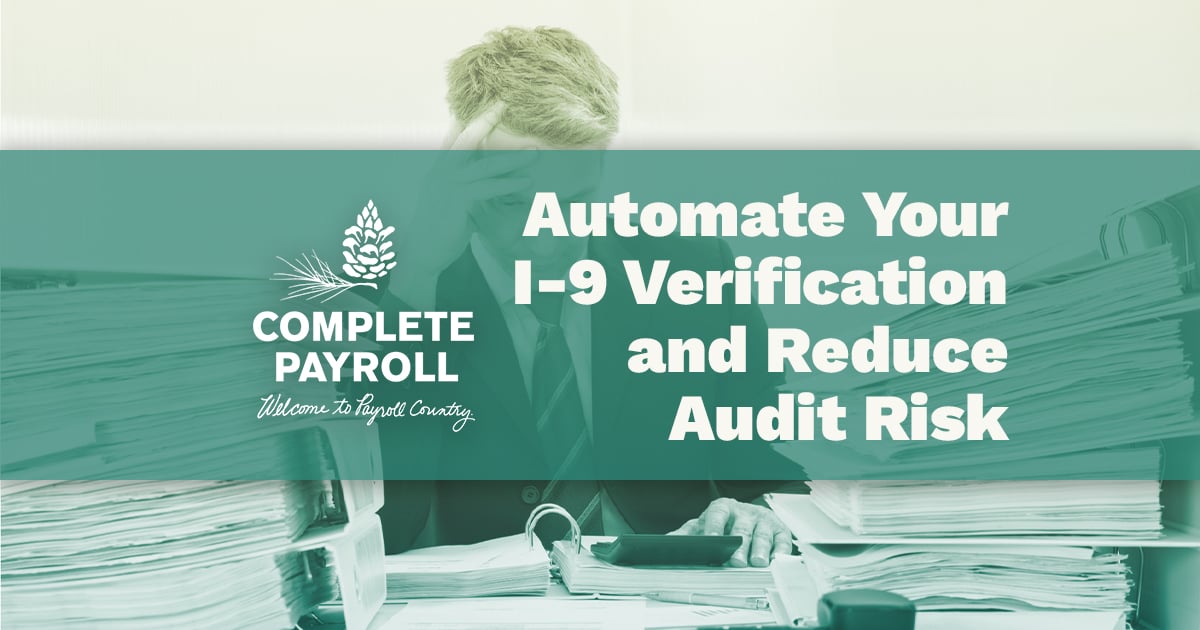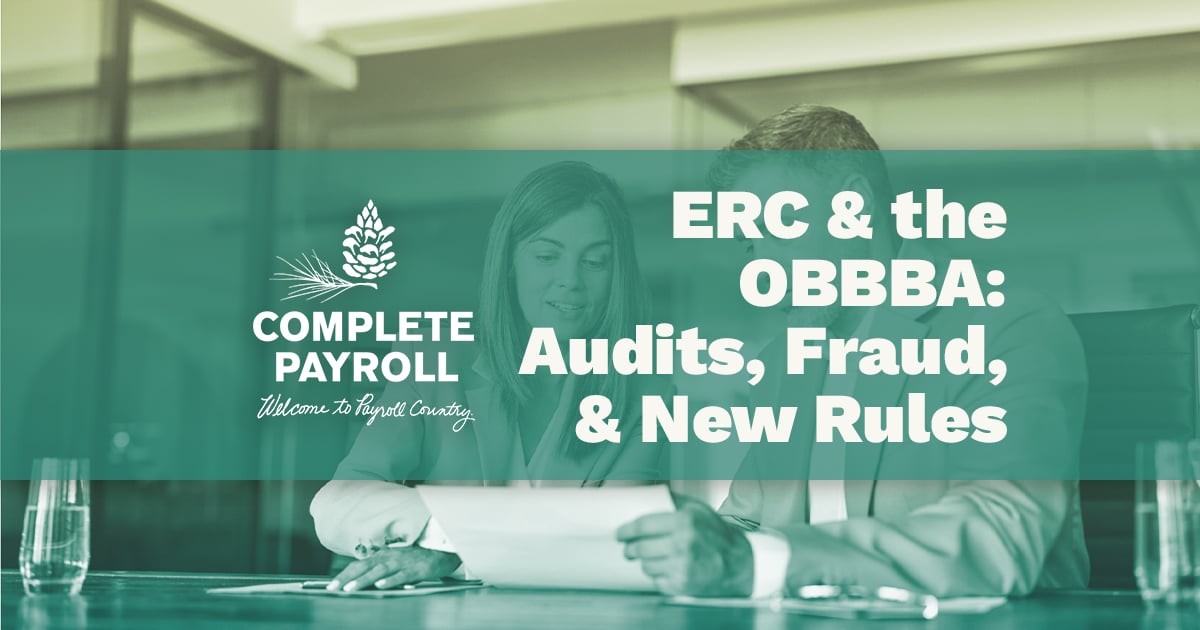The FLSA determines too many workplace standards for any mere mortal to remember. So we've created the FLSA Cheat Sheet to serve as an all-in-one quick reference guide that's easy to access and doesn't spare any of the details. Here's what's included:
Overview & Standards
Employer's FLSA Exemption Guide (PDF)
Employer Checklists
Company Policy Templates
FLSA Support

The Fair Labor Standards Act (FLSA) establishes minimum wage, overtime pay, record-keeping, and child labor and several other workplace standards affecting full-time and part-time workers in the private sector and in Federal, State, and local governments. Use the accordion menu below to navigate all the standards quickly and easily.
Applicability
The Fair Labor Standards Act (FLSA) applies to:
Overtime
Unless exempt from the Act, the FLSA requires that employees be paid at least the federal minimum wage and an overtime premium of 1.5 times their regular rate of pay for all hours worked over 40 in one workweek. Employers must pay higher state or municipal minimum wages if they exist. An employee's "regular rate of pay" may include more than their base hourly wage. See the FLSA overtime page or search "regular rate of pay" for additional information.
Lactation Accommodations
Employers are required to provide reasonable break time for an employee to express breast milk for their nursing child for one year after the child’s birth each time such employee has
Child Labor
The FLSA also regulates the employment of youth.
Jobs Youth Can Do:
Youth ages 14 and 15 may only work the following hours/durations:
Different rules apply to youth working in agriculture.
Many states have stricter child labor laws than the FLSA - the strictest standard will always apply.
Covered, nonexempt workers are entitled to a minimum wage of $7.25 per hour effective July 24, 2009. Special provisions apply to workers in American Samoa and the Commonwealth of the Northern Mariana Islands. Nonexempt workers must be paid overtime pay at a rate of not less than one and one-half times their regular rates of pay after 40 hours of work in a workweek.
Wages required by the FLSA are due on the regular payday for the pay period covered. Deductions made from wages for such items as cash or merchandise shortages, employer-required uniforms, and tools of the trade, are not legal to the extent that they reduce the wages of employees below the minimum rate required by the FLSA or reduce the amount of overtime pay due under the FLSA.
The FLSA contains some exemptions from these basic standards. Some apply to specific types of businesses; others apply to specific kinds of work.
While the FLSA does set basic minimum wage and overtime pay standards and regulates the employment of minors, there are a number of employment practices which the FLSA does not regulate.
For example, the FLSA does not require:
The FLSA does not provide wage payment or collection procedures for an employee’s usual or promised wages or commissions in excess of those required by the FLSA. However, some States do have laws under which such claims (sometimes including fringe benefits) may be filed.
Also, the FLSA does not limit the number of hours in a day or days in a week an employee may be required or scheduled to work, including overtime hours, if the employee is at least 16 years old.
The above matters are for agreement between the employer and the employees or their authorized representatives.
To be properly classified as exempt an administrative employee must pass three tests:
Part 1 of the test is the hardest and employers often misclassify workers as exempt administrative employees when they don't actually qualify. In order to be exempt employees should pass the two-part duties test. If in doubt, it's safest to classify an employee as non-exempt and pay overtime when worked.
In the timekeeping context, biometrics refers to the measurement of people’s physical characteristics and use of that information to track when they come and go from work. For instance, an employer could install a finger or hand scanner in lieu of a punch card or pen-and-paper tracking system. The unique advantage of a biometric timekeeping system is that employees cannot clock in or out for one another (“buddy punching”).
Although the use of biometrics in timekeeping is on the rise, it’s still far from commonplace. Currently, laws specifically related to this practice in the employment setting are limited. However, employers considering the use of biometric timekeeping systems should be aware that the information collected is likely protected by privacy laws and should be stored with heightened security. Additionally, as the practice spreads we can expect to see more states drafting their own legislation on the issue.
Labor law experts commonly recommend that employers take the following steps if implementing a biometric timekeeping system:
Use the Biometric Date Collection and Use Notice and Consent Form linked on the left to provide employees with information about your practices and document their authorization.
The Fair Labor Standards Act (FLSA) does not require work permits or age certificates for minors. Many states, however, do require them for workers of certain ages. The US Department of Labor (DOL) will issue age certificates if the minor employee's state does not issue them and the minor’s employer requests that they provide one.
The purpose of these certificates is to protect the employer from prosecution for employing an under-aged worker. Having an age certificate on file constitutes a good-faith effort to comply with minimum age requirements.
Unless a state requires a higher minimum wage, employees under 20 years old may be paid $4.25 for their first 90 consecutive calendar days of work.
Certain full-time students can be paid 85% of the minimum wage if the employer applies for a special certificate from the DOL, and allowed by state law. For additional information, employers can call the DOL at (312) 596-7195.
The FLSA requires employers to display the Minimum Wage Poster, which includes information regarding child labor.
The FLSA has no restrictions on the hours of work for minors who are 16 or 17 years old.
Minors age 14 and 15 who are covered by the FLSA:
Minors may not be employed in any of the following types of establishments or positions:
*In these occupations, a minor who is 16 or 17 may be employed as an apprentice or student learner.
An apprentice is defined as someone who is employed in a recognized apprenticeable trade; whose work is incidental to training; whose work is intermittent, short, and under close journeyman supervision; and whose work is registered or executed under a written agreement about work standards.
A student learner is defined as someone who is enrolled in an authorized cooperative vocational training program with a written agreement; whose work is incidental to training; whose work is intermittent, short, and under close supervision; who receives safety instructions from a school and employer; and who follows a schedule of organized and progressive work.
Only the following occupations are allowed for minors who are 14 or 15 years old.
If an occupation is not specifically listed as permitted, then it is prohibited.
Federal law also lists activities that are specifically prohibited for minors who are 14 or 15 years old. Minors may not work in the following establishments or positions, even if they appear to be included in the Allowed Work list above.
Minors under 14 are not allowed to work, with limited exceptions, such as acting or performing, delivering newspapers, or working in agriculture.
Commissioned employees in retail and sales establishments may be exempt from the overtime requirements of the FLSA if certain conditions are met. This exemption is different from the commonly used White Collar Exemptions. If a retail or service employer elects to use the overtime exemption for commissioned employees, three conditions must be met.
The representative period for determining if enough commissions have been paid may be as short as one month
If the employee is paid entirely by
Hotels, motels
Typical Problems Regulations require that employers maintain accurate records of hours worked each workday, hours worked each
Tips paid to service employees by customers may never be considered commissions for the purposes of this exemption.
To be properly qualified as exempt a computer employee must pass three tests: They must perform certain specific duties; they must be paid the minimum salary for exempt employees as designated by the Department of Labor or at least $27.63 per hour; if they are paid a salary (rather than $27.63+ per hour), then they must be paid on a salary basis, meaning they’ll make the same amount every week regardless of how many hours they work, or the quantity or quality of their work.
The employee’s primary duty must consist of:
The computer employee exemption does not include employees engaged in the manufacture or repair of computer hardware and related equipment.
To be properly qualified as exempt an executive employee must pass three tests: They must perform certain specific duties, they must be paid the minimum salary for exempt employees as designated by the Department of Labor, and they must be paid on a salary basis, meaning they’ll make the same amount every week regardless of how many hours they work, or the quantity or quality of their work.
Executive Management Behaviors
A person – whether they are called a business owner or employee – who owns at least a bona fide 20% equity interest in the company, regardless of the type of business organization, and who is actively engaged in its management, is considered a bona fide exempt executive.
The Highly Compensated Employee (HCE) exemption applies to employees who perform a limited number of executive, administrative, or professional duties, but are so well compensated that they still qualify to be exempt as White Collar Employees.
At the end of the year, if the employee has not been compensated at least $100,000, the employer may make up the difference in order to maintain the exemption. If the employer chooses not to pay the difference, they must calculate and pay out all of the employee's overtime for the previous year.
Under the Fair Labor Standards Act employers are required to provide reasonable break time for employees to express breast milk for their nursing child, as frequently as needed, for up to one year after the child’s birth. The number and length of breaks needed by employees will vary, but employers should expect
Employers are also required to provide a place that is shielded from view and free from intrusion from coworkers and the public. A bathroom, even if private, is not a permissible location under the Act. The location provided must be functional as a space for expressing breast milk. If
The FLSA requirement of break time for nursing mothers to express breast milk does not preempt State laws that provide greater protections. State-specific regulations can be found by searching "Your State breastfeeding" in the universal search bar.
The current federal minimum wage is $7.25 per hour. The current minimum wage for federal contractors who have services covered by the Service Contract Act, or concessions and services in connection with federal property or lands, is $10.35. Employees must be paid at least the federal minimum wage unless neither the organization nor the employee
There are ways an organization or employee can be covered by the FLSA:
This applies to all businesses whose annual gross volume of sales or business
Even a business that is not covered under Enterprise may have individual employees who are covered under the provisions of the FLSA. If an individual is engaged in interstate commerce, production of goods for interstate commerce, handling or working on goods or materials that are moving in interstate commerce, or is involved in an occupation that is closely related or directly essential for the production of goods for interstate commerce, that employee is covered on an individual basis. The Individual category includes those who work in communications or transportation, or who regularly use the postal system or telephone for interstate communications. Even employees of the smallest businesses may be covered on an Individual basis. For example, individuals who accept checks and credit cards are involved in the interstate banking system and would probably be covered under the FLSA. The same is true for an individual who uses the U.S. Postal Service to ship or order goods anywhere outside the state's boundaries.
The FLSA specifically exempts certain employees from minimum wage and/or overtime, including those holding the following positions:
Many states have a narrower list of exemptions from the minimum wage and/or overtime. Employers who plan to classify employees as exempt should check state law to ensure compliance. Many states also enforce a higher minimum base pay for tipped employees, or disallow tip credits altogether, making this another area where it is important for employers to be familiar with state law.
The Fair Labor Standards Act enumerates the following positions and industries that are exempt from overtime requirements. States that have their own wage and hour laws may not recognize many of these exemptions, in which case employers should pay overtime in accordance with state law.
To be properly qualified as exempt an outside sales employee must pass the duties test. Unlike other white collar exemptions under the FLSA, outside sales employees are not subject to the minimum salary requirements, nor the salary basis test. As long as they pass the duties test they may be properly classified as exempt.
“Customarily and regularly” means the activity is more than occasional but doesn’t necessarily need to be constant. It includes work that’s normally done on a weekly
“Away from employer’s place of business” means the employee is at the customer's office or job
To be properly qualified as exempt a professional employee must pass three tests: They must perform certain duties, they must be paid the minimum salary for exempt employees as designated by the Department of Labor, and they must be paid on a salary basis, meaning they’ll make the same amount every week regardless of how many hours they work, or the quantity or quality of their work.
There are two kinds of professional employee exemption. Employees only need to qualify for either Learned or Creative to be exempt.
Work Requiring Advanced Knowledge
“Work requiring advanced knowledge” means work which is predominantly intellectual in character, and which includes work requiring the consistent exercise of discretion and judgment. Professional work is therefore distinguished from work involving routine mental, manual, mechanical or physical work. A professional employee generally uses the advanced knowledge to analyze, interpret or make deductions from varying facts or circumstances. Advanced knowledge cannot be attained at the high school level.
Field of Science or Learning
Fields of science or learning include law, medicine, theology, accounting, actuarial computation, engineering, architecture, teaching, various types of physical, chemical and biological sciences, pharmacy and other occupations that have a recognized professional status and are distinguishable from the mechanical arts or skilled trades where the knowledge could be of a fairly advanced type, but is not in a field of science or learning.
Customarily Acquired by a Prolonged Course of Specialized Intellectual Instruction
The learned professional exemption is restricted to professions where specialized academic training is a standard prerequisite for entrance into the profession. The best evidence of meeting this requirement is having the appropriate academic degree. However, the word “customarily” means the exemption may be available to employees in such professions who have substantially the same knowledge level and perform substantially the same work as the degreed employees, but who attained the advanced knowledge through a combination of work experience and intellectual instruction. This exemption does not apply to occupations in which most employees acquire their skill by experience rather than by advanced specialized intellectual instruction.
Teachers
Teachers are exempt if their primary duty is teaching, tutoring, instructing or lecturing in the activity of imparting knowledge, and if they are employed and engaged in this activity as a teacher in an educational establishment. Exempt teachers include, but are not limited to, regular academic teachers; kindergarten or nursery school teachers; teachers of gifted or disabled children; teachers of skilled and semi-skilled trades and occupations; teachers engaged in automobile driving instruction; aircraft flight instructors; home economics teachers; and vocal or
Practicing Doctors and Lawyers
An employee holding a valid license or certificate permitting the practice of law or medicine is exempt if the employee is actually engaged in such a practice. An employee who holds the requisite academic degree for the general practice of medicine is also exempt if he or she is engaged in an internship or resident program for the profession. The salary and salary basis requirements do not apply to bona fide practitioners of law or medicine.
The employee’s primary duty must be the performance of work requiring invention, imagination, originality or talent in a recognized field of artistic or creative endeavor.
Exemption as a creative professional depends on the extent of the invention, imagination, originality or talent exercised by the employee. Whether the exemption applies must be determined on a case-by-case basis. The requirements are generally met by actors, musicians, composers, certain painters, cartoonists, and novelists. Be wary of applying this exemption to an employee whose artistic expression is limited by the scope of their tasks. For instance, a graphic designer who spends their time making PowerPoint presentations for jury trials probably would not qualify for this exemption, since a different graphic designer given the same task would likely produce a very similar product.
Making certain deductions from an exempt employee’s salary may put the exemption at risk; this is because the effect of the deduction is that the employee is being compensated on an hourly rather than salary basis. The Department of Labor has been quite clear about when deductions are permissible or prohibited.
A “bona fide” sick leave plan is a paid sick leave benefit provided to employees in the case of absence from work due to illness, injury, or disability. This time can be called sick leave, paid time off (PTO), or vacation; the name of the benefit is not important, as long as that time can be used for illness, injury, or disability. The parameters of a plan that qualifies as "bona fide" have been laid out in Department of Labor opinion letters, which have been responses to fact-specific inquiries from unique employers. However, the following requirements are considered to be well-established:
If a deduction is improperly made, the federal regulations provide for a window of correction. This window allows for the correction of an inadvertent deduction if an employee is promptly and fully reimbursed for it. Corrections should be made as soon as possible after an improper deduction is discovered. In order to take advantage of this window of correction (or "safe harbor") the employer must have a clearly communicated policy prohibiting improper pay deductions and providing a complaint mechanism. Employers must then reimburse employees for any improper deductions and make a good faith commitment to comply in the future. If this policy is provided and these steps follow, the employer will not lose the exemption as a result of improper and inadvertently deductions. An employer will incur liability if it repeatedly and willfully violates its own policy, or if it has an actual practice of noncompliance across a department or division.

.png?width=100&height=100&name=pdf%20(2).png)
The FLSA determines when overtime must be paid to an employee. This Guide explains those exemptions and includes a flow chart to help determine an employee's status.

Use this checklist as an introduction to the federal employment classifications as defined in the Fair Labor Standards Act and a resource to help determine an employee's exemption status.

This checklist will walk you through the process of auditing your current pay practices to ensure you are following all applicable wage and hour laws.

Use this template to update your company timekeeping policy in your employee handbook. This is useful to establish consistency and for newly non-exempt employees.

Use this template to update your employment classifications policy in your employee handbook. This helps employees understand how (and why) they are classified.

Use this template to update your company's off-the-clock work policy in your employee handbook, which is critical for newly non-exempt employees.

Complete Payroll helps thousands of clients throughout the country with payroll processing, human resources, timekeeping and labor law compliance every day. Complete the form below and someone from our team will get back to you within 1 business day to answer any questions you may have and direct you to more resources about the Fair Labor Standards Act.

Kevin Casey, Chief Operating Officer, Mead Square Pharmacy

Nancy Woolver, Financial Adviser, The Financial Service Company

George Emerling, Vice President, Emerling Agency

Arden Neubauer, Business Manager, Hunt Hollow Ski Club
If it's relevant or interesting and it relates to taking care of your people, we're publishing it.

The Department of Labor (DOL) has issued a new Interim Final Rule (IFR) for the H-2A visa program that offers immediate potential for labor cost reductions. Effective immediately for new job orders,

For business owners and HR professionals managing a workforce, the Form I-9, Employment Eligibility Verification, is a non-negotiable federal requirement. Every person hired in the U.S. must complete

The Employee Retention Credit (ERC) provided essential relief for businesses during the pandemic, but the program’s legacy is now defined by widespread confusion and growing risk. Business owners and
505 Ellicott Street
Buffalo, NY 14203
Phone: 716-482-7580
Fax: 716-482-7580
sales@completepayroll.com
7488 State Route 39
P.O. Box 190
Perry, NY 14530
Toll Free: 888-237-5800
Phone: 585-237-5800
Fax: 585-237-6011
info@completepayroll.com
130 South Union Street, Suite 205
P.O. Box 650
Olean, NY 14760
Toll Free: 888-237-5800
Phone: 716-373-1000
Fax: 716-373-1001
info@completepayroll.com